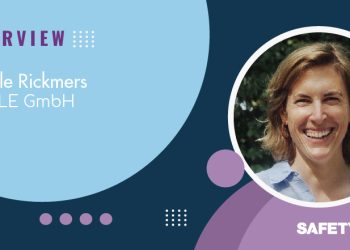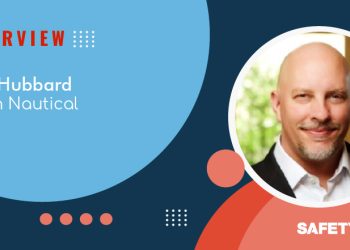Mr. Colin Gillespie, Deputy Director (Loss Prevention) at North P&I Club discusses the current and future challenges for shipping from the loss prevention perspective, highlighting what is required for keeping the right combination of knowledge, experience and attitude, thus having ‘the Right Crew’ onboard. In an exclusive interview with SAFETY4SEA, Mr. Gillespie notes that the most concerning trend over the last years has been the attitude of those ashore to maritime accidents and incidents and explains why an efficient culture is vital.
SAFETY4SEA: What will be the biggest challenge in terms of Loss Prevention up to 2020? How this will affect the industry and how are you preparing to face this?
Colin Gillespie: The biggest challenge for the industry from a loss prevention perspective is the quality of officers available to owners. The safety and efficiency of any shipping company is reliant upon quality officers. At North, we refer to officers who have the right combination of knowledge, experience and attitude as ‘The Right Crew’. Unfortunately, pressures within the employment market mean that sometimes officers are employed who may not have sufficient knowledge or experience, or who do not have the right attitude to adopt company preferences, change their behavior or take good decisions. These officers require increased oversight onboard and from ashore.
Looking at wider industry issues, one of the biggest challenges for the coming years is the global cap on sulphur in fuel. The limit reduces to 0.5% on 1st January 2020. At present, it appears that this may turn out to be a hard deadline. There are numerous issues for owners to consider. In the short term, a changeover to gas oil seems likely to be the choice for most ships but this is costly. Over the long term there are likely to fundamental changes to vessel design and operation. Orders are now being placed for ‘dual fuel’ ready vessels that burn MGO and LNG. Vessels are being ordered, or retrofitted, with scrubbers and there is considerable research into alternative fuel systems such as battery technology, hydrogen fuel cells and even wind power. The costs associated with the changeover may also lead to extensive scrapping of inefficient older vessels.
S4S: Regarding the claims received from your members last year, which was the major contributor factor for the majority of them?
C.G.: Root cause analysis of high value claims, in particular the findings of failure to follow procedures, point to problems with shipping company safety culture in many incidents. Safety culture and seafarer standards are, of course, closely linked. If seafarers with the right ability and attitude are recruited, retained, trained and mentored then establishing and maintaining safety culture is less problematic.
S4S: Have you noticed any worrying trend during the last five to ten years?
C.G.: Perhaps the most concerning trend over this period has been the attitude of those ashore – particularly the authorities – to maritime accidents and incidents. The reaction of those ashore can be out of proportion to the seriousness of an incident. The reasons for this are complex but a combination of politics, increased environmental awareness and a lack of understanding of shipping are all contributing factors. This situation has not only led to increased claims costs but more importantly in the unjustified criminalisation of seafarers, particularly vessel Masters, in some instances.
Another area of concern for shipping is that there appears to be an over reliance on advice from ashore by those on vessels even for routine matters. Reluctance to take decisions on board without input from ashore can transfer to safety critical situations requiring immediate decisions. This is perhaps an unintended consequence of the link between shore and ship established by the ISM Code allied with the ease of modern communication.
S4S With respect your own Loss prevention initiatives, which one tends to me more effective? Have you realized any tangible benefits from the communication with your members so far that you would like to share?
C.G.: Communicating with members is always beneficial as it helps us understand their concerns and helps make our loss prevention service relevant. In our recent member survey loss prevention scored highly in all areas of work. Some members appreciate out publications, some like our enquiries service, whilst others like our loss prevention seminars. Tailoring our loss prevention service to meet the needs of individual members works best. Perhaps our best service is the ability to provide timely, relevant and useful information to allow Members to trade with confidence.
S4S: How does your Club promote loss prevention across the industry?
C.G.: One role of North’s industry leading loss prevention department is to promote our initiatives to our Members with activity focused on benefitting the whole membership. Our work is guided by two working groups of Members, one based in the Asia Pacific region and the other European based. Through these groups, Members can share their concerns around safety and loss prevention and we can respond to Members’ concerns appropriately. Over the years, we have developed many different means of communicating with our Members. We offer member visits, crew seminars, member reviews, a loss prevention enquiry service, webinars, email bulletins, our maritime threats and incidents service and, of course, our more traditional means of communicating such as our long-established Signals magazine, and our comprehensive range of loss prevention guides, briefings, posters and other publications.
‘’If seafarers with the right ability and attitude are recruited, retained, trained and mentored then establishing and maintaining safety culture is less problematic.’’
S4S: Are there any projects that you are working on right now regarding loss prevention?
C.G.: Yes. We are always working on various projects to improve the loss prevention service to our Members as well as continually reviewing and improving existing initiatives and material. We are currently looking at a couple of areas for development in relation to crew matters and safety culture.
S4S: What are your suggestions to industry stakeholders to enhance effectiveness of loss prevention best practices?
C.G.: Commit to safe and efficient operations at all levels of the company – ashore as well as afloat. Work hard to identify and retain the right crew. Think about your SMS – is it easy for the crew? Can it be simplified and streamlined to make it more user-friendly? Also, work hard every day with the goal of safe and efficient shipboard operations. Eventually this will deliver a well-maintained fleet, with the Right Crew onboard, who exhibit the right behaviors and will implement your well-designed systems. Your company will be both safe and efficient. There is no silver bullet.
The views presented hereabove are only those of the author and not necessarily those of SAFETY4SEA and are for information sharing and discussion purposes only.
































































Thank you for posting, very interesting